Editor’s note: It’s important to keep in mind the period of time in which Call of Duty: Vanguard releases in, while Activision Blizzard’s work culture, practices, and the parent company’s responses are under fire and resulting in a handful of lawsuits. While the Vanguard team has not been implicated in these stories, the context nevertheless still matters. It’s ultimately up to the consumer whether or not they’re still comfortable purchasing this product amidst all of this.
No matter how enjoyable it may be, a Call of Duty single player campaign is almost never why a player sticks with the game as a whole. Regardless, the lead-up to the release of any Call of Duty has its premise, characters, and scenarios pushed to the forefront of marketing. The elevator pitch for Call of Duty: Vanguard involves a multinational team of four in a prototype “Special Ops” unit, in a story developer Sledgehammer Games promises to be “deeply engaging and raw.”
There’s always a level of passion and intensity displayed from the developers behind these campaigns, but nearly all Call of Duty stories eventually fall into the same traps, restrained by the series’ structural limitations. Despite some of the technical and cinematic triumphs of Call of Duty: Vanguard, the single player narrative ends up an “also-ran” amidst the countless forgettable Call of Duty campaigns. Even with some deviations from formula, Vanguard can’t help but feel derivative of other triple-A games.
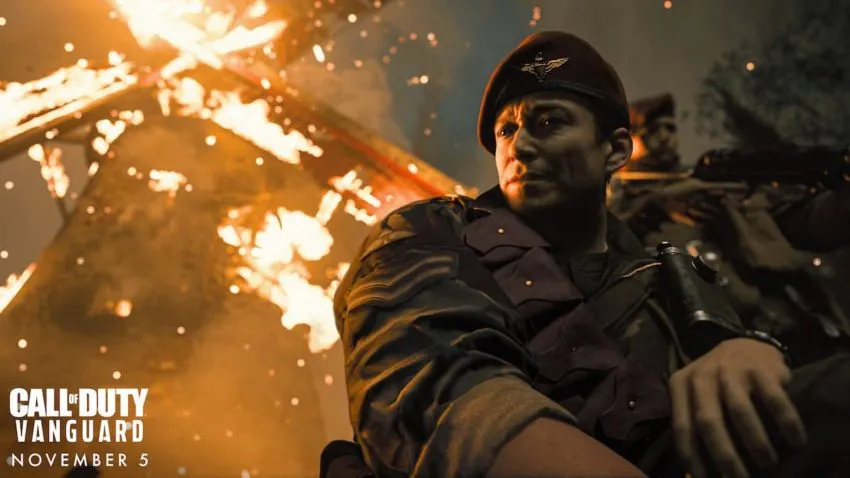
Still, it’s worth giving praise to the cast of Call of Duty: Vanguard — this could have easily been a team of walking stereotypes or a G.I. Joe-like cartoon, but characterization of these Vanguard team members is strong. Arthur Kingsley, a black British sergeant, leads the unit, and it was genuinely surprising and intriguing to have his race play a factor in dialogue and character interaction. Similarly goes for Polina Petrova, a Soviet sniper who becomes a local legend named “Lady Nightingale.” While no one will be winning awards for this story, dialogue feels organic and distinct between characters.
Vanguard takes a different narrative structure approach from other Call of Duty games, alternating between present day and flashbacks to give each of the four main characters their own backstory and development and to present parallels between then and now. However, because of the inherently short nature of Call of Duty campaigns, there is very little time to flesh out the main plot.
We get a lot of time learning how American pilot Wade Jackson got his head out of the clouds and became a real team player on the field, or how Australian demoman Lucas Riggs matured and toughened despite his short fuse. The actual mission of this Vanguard unit remains vague throughout — something about getting ahold of some files, we’re told occasionally.
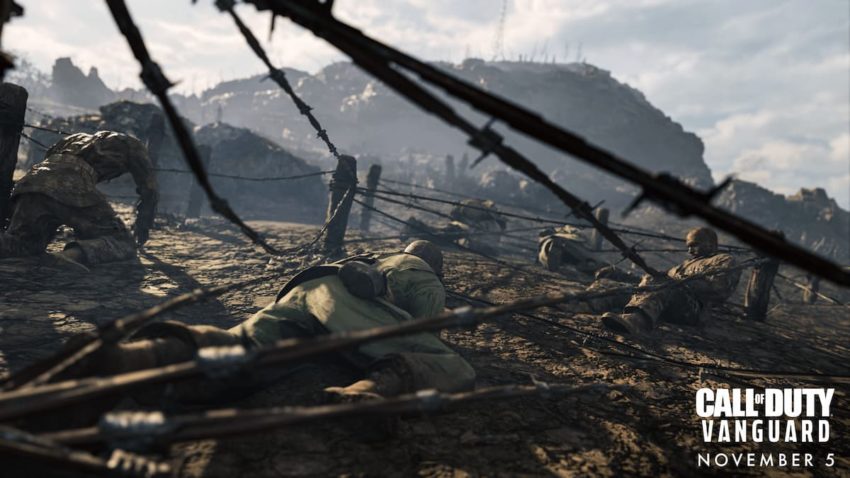
Even though the different chapters initially appear to offer variety, the cracks begin to show when you see that all four characters have a similar outline. All four of these stories have the main character under heavy adversity in an uphill struggle, introduce a unique gameplay gimmick (i.e. Polina drawing attention from snipers or Lucas holding several types of explosives), have some sort of a stealth mission, and eventually lose a close one or comrade in arms. Because we spend so much time with these characters individually, there is little time to understand their dynamic as a team — the last mission feels particularly rushed and contrived as a result.
While all video games utilize some form of programming trickery and illusionary techniques, Call of Duty has always been an easy series to break. Even with some gimmicks that may be outside the Call of Duty norm, the general guardrails of the franchise show quite often. As Kingsley, you can bark out commands to your troops, but don’t expect nuance or flexibility in strategizing — you can only select commands when prompted by the environment. You’ll tell soldiers to focus fire on a turret to give you a chance to run ahead to cover, and if you turn around, you’ll see that bullets are materializing and flying from thin air towards whichever predetermined target you picked.
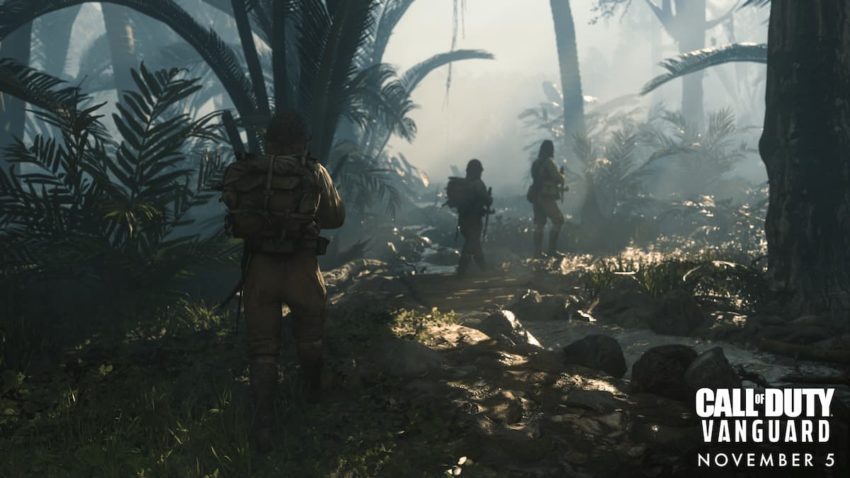
Wade has a “Focus” ability, which slows time down and shows nearby enemies in white outlines, similar to the Hitman series. This ability lasts for mere seconds, and his overly linear stealth sequences don’t even match up to Black Ops Cold War’s attempt to ape the Hitman rhythm in the KGB level. Polina’s stealth scenes are more open, giving her movement options that let her slip into tight spaces. But as I went in circles in a final boss encounter that had me armed with nothing but a knife, I flashed back to a near-identical sequence in 2019’s Modern Warfare campaign. And even that itself felt like an imitation of other asymmetrical “stalking” boss fights from games like The Last of Us.
Even when Call of Duty: Vanguard tries to add something extra to the usual CoD format, the result is something that pales in comparison to something you’ve played before. That isn’t to say that past Call of Duty games have been unsuccessful in breaking the norm — think back to 2010’s Black Ops 2, with several narrative paths and occasional RTS segments making for an absolutely bonkers experience. Or the severely underrated Infinite Warfare from 2016, which truly put players in the shoes of someone in command. That story provided several optional missions to choose from and an overall sense of momentum, making the whole campaign feel like a continuous action scene in a surprisingly tangible and plausible futuristic world.
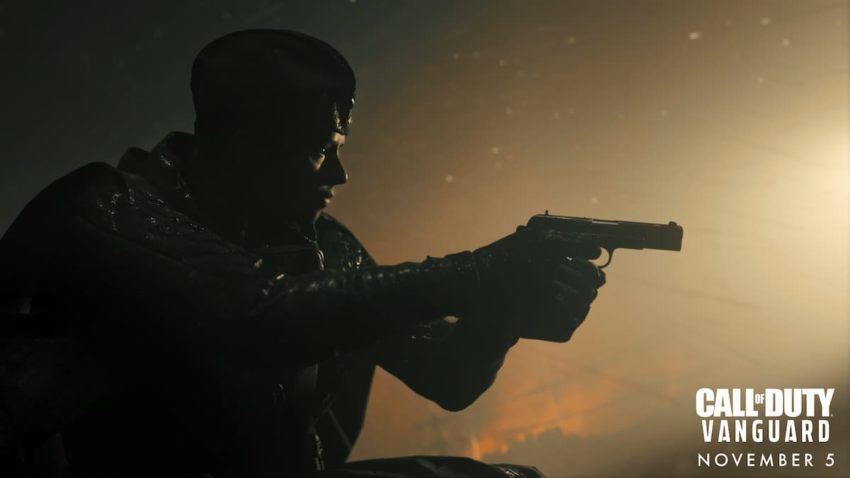
Related: Call of Duty: Vanguard multiplayer is a fantastic, if uninspired time – Hands-on impressions
By the last campaign missions, all story elements with potential — Kingsley’s race and status of a leader, Polina’s gender and pseudo-celebrity, the uneasy tension between England and Australia — is all sidelined for these four characters to devolve into idiotic action heroes. Not to mention, the narrative spends far too much time on a Nazi officer portrayed by Lord of the Rings and Lost star Dominic Monaghan, who tries to weasel his way out of trouble from his superiors. Similar to Modern Warfare and Black Ops Cold War, the story ends strangely open-ended and rather abruptly, to serve the narrative’s “continuation” in multiplayer and the live service in Warzone. This “engaging and raw” story ended in such a silly manner that I expected an iris out and a Looney Tunes-like “That’s All, Folks!”
It’s fair to not expect anything but propaganda from a Call of Duty story, but some campaigns have provided fun Hollywood entertainment and some pulpy ridiculousness — even as I praise Infinite Warfare for feeling real and tangible, I still guffaw at Kit Harrington’s villain saying “Mars Eternum” with a straight face. But no matter how detailed and beautiful the cinematics are in Call of Duty: Vanguard, or how solid any of the dialogue and characterization is, none of it is served well in a story that can’t step out of the shadow of superior triple-A blockbusters of today, or even the Calls of Duty of yesteryear.

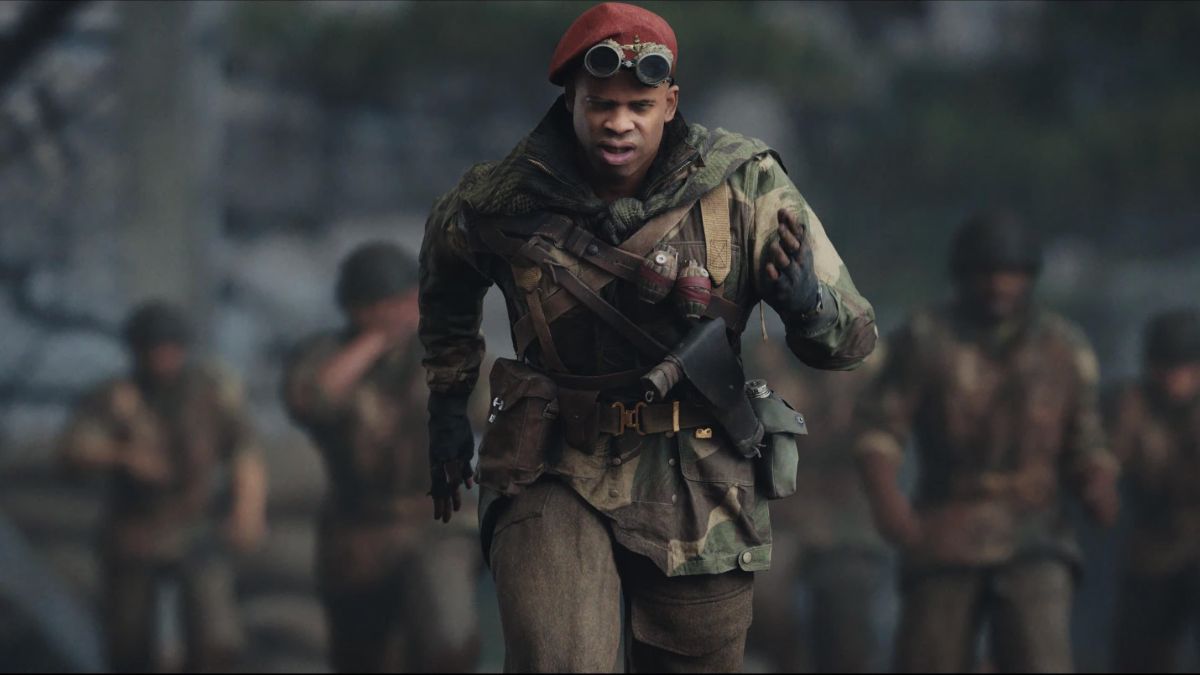
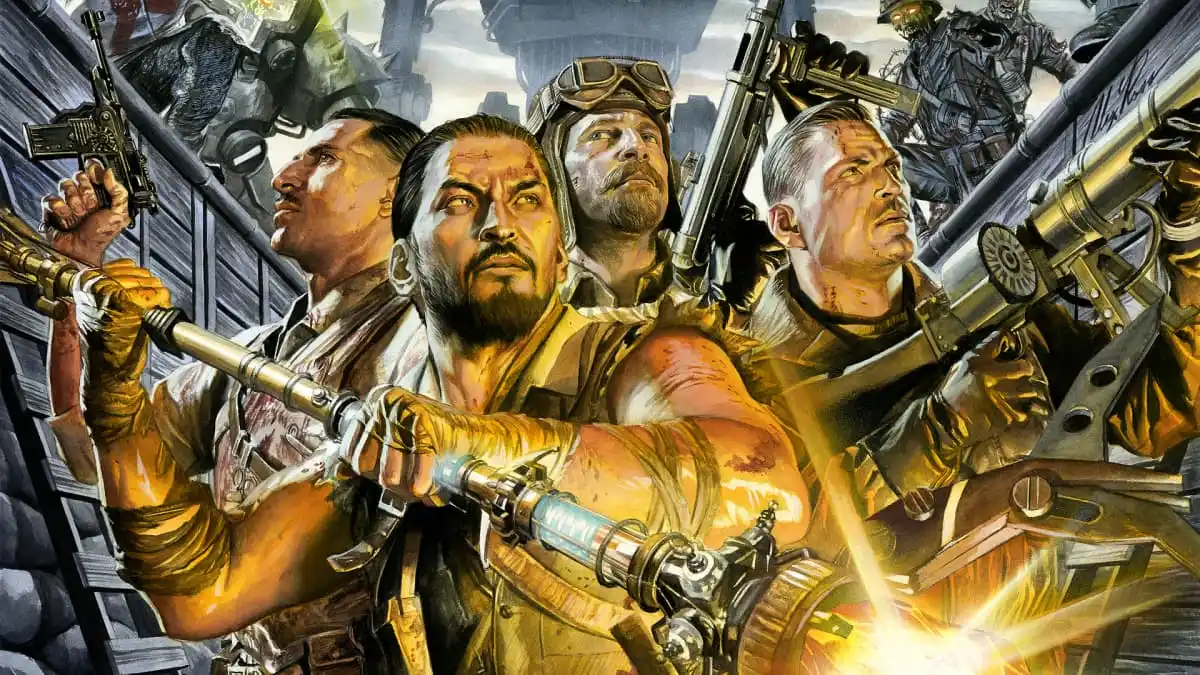

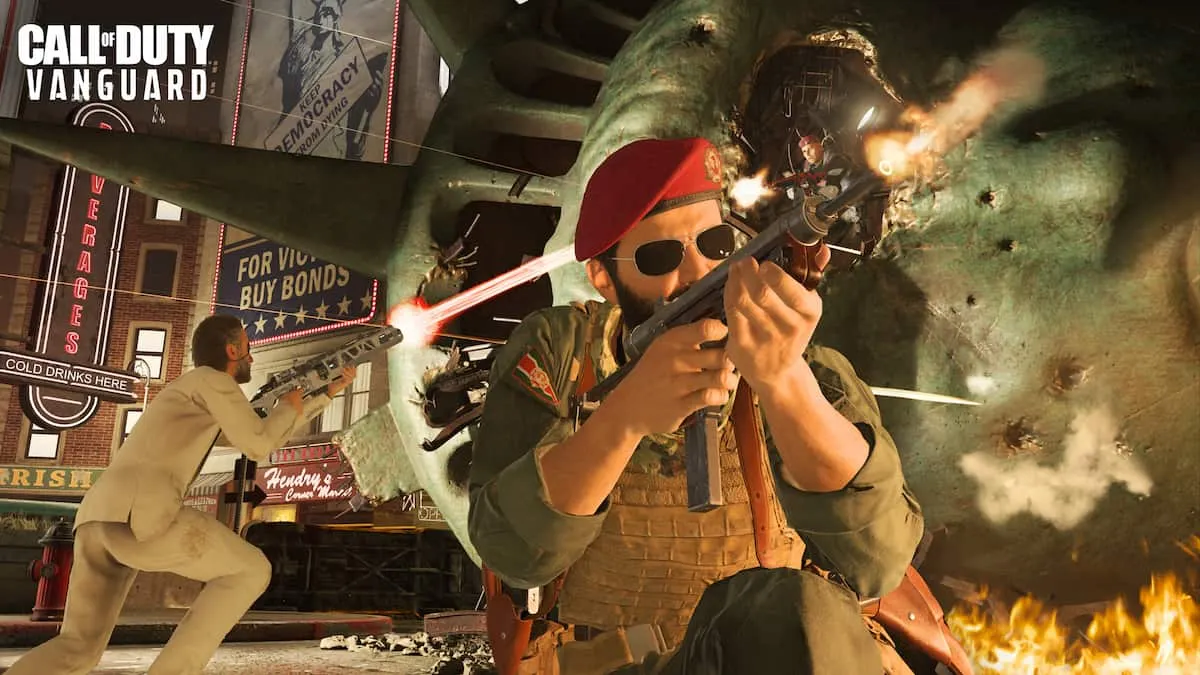
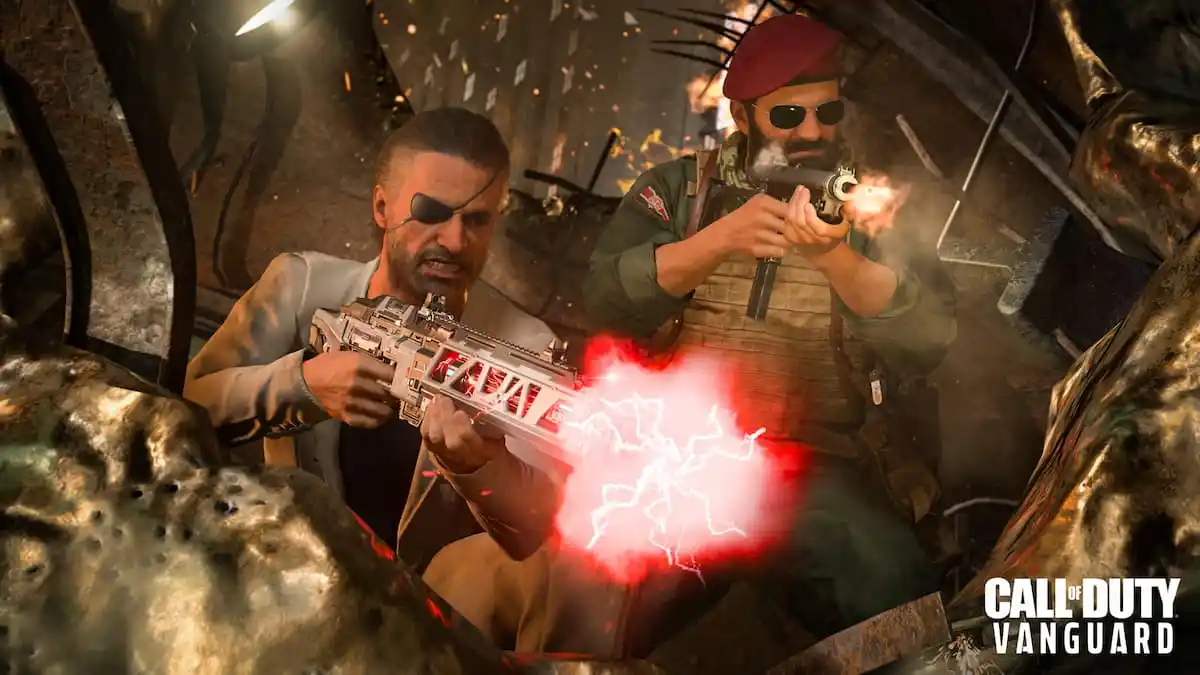
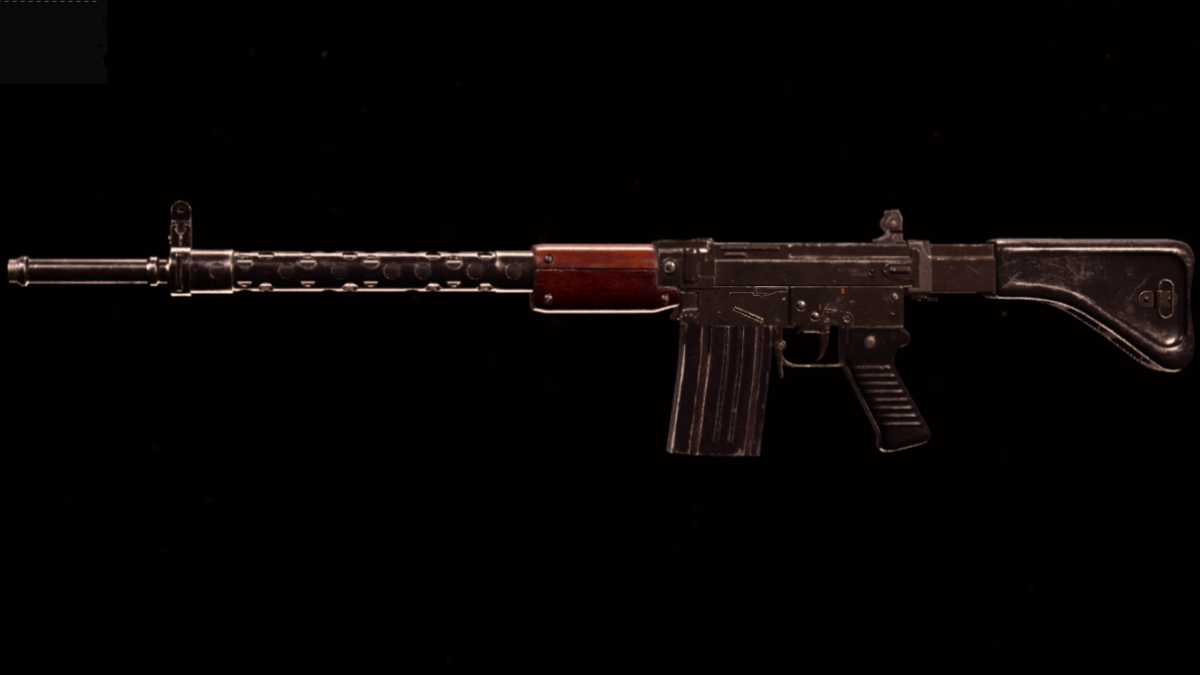
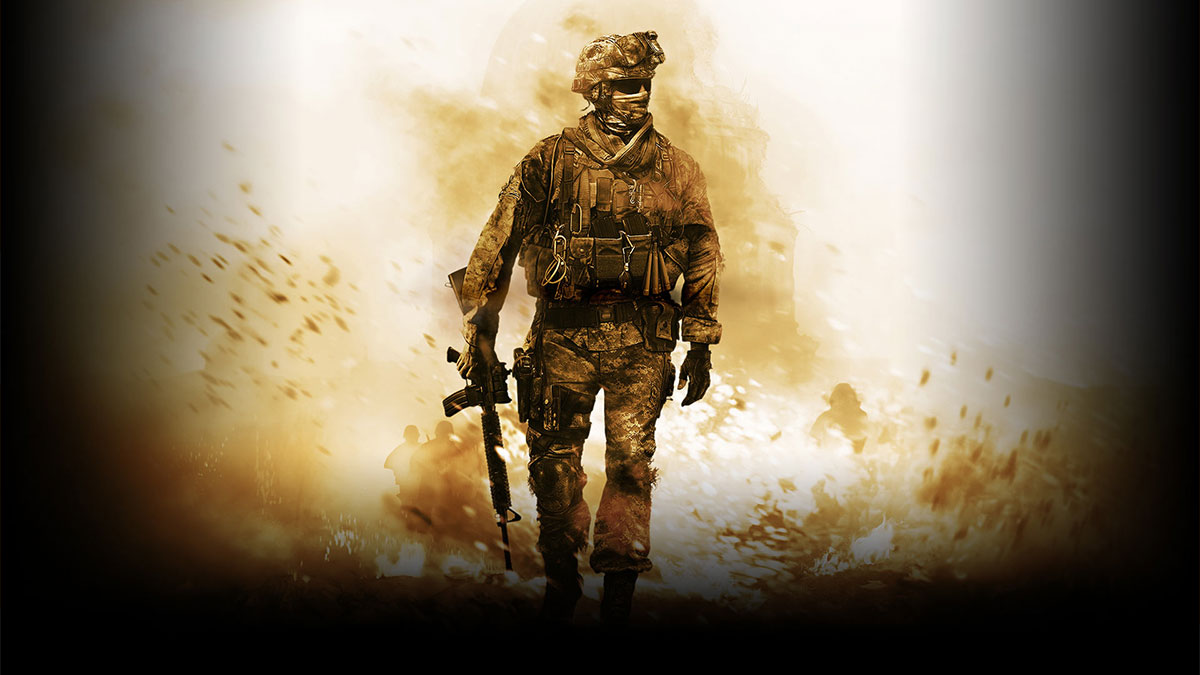
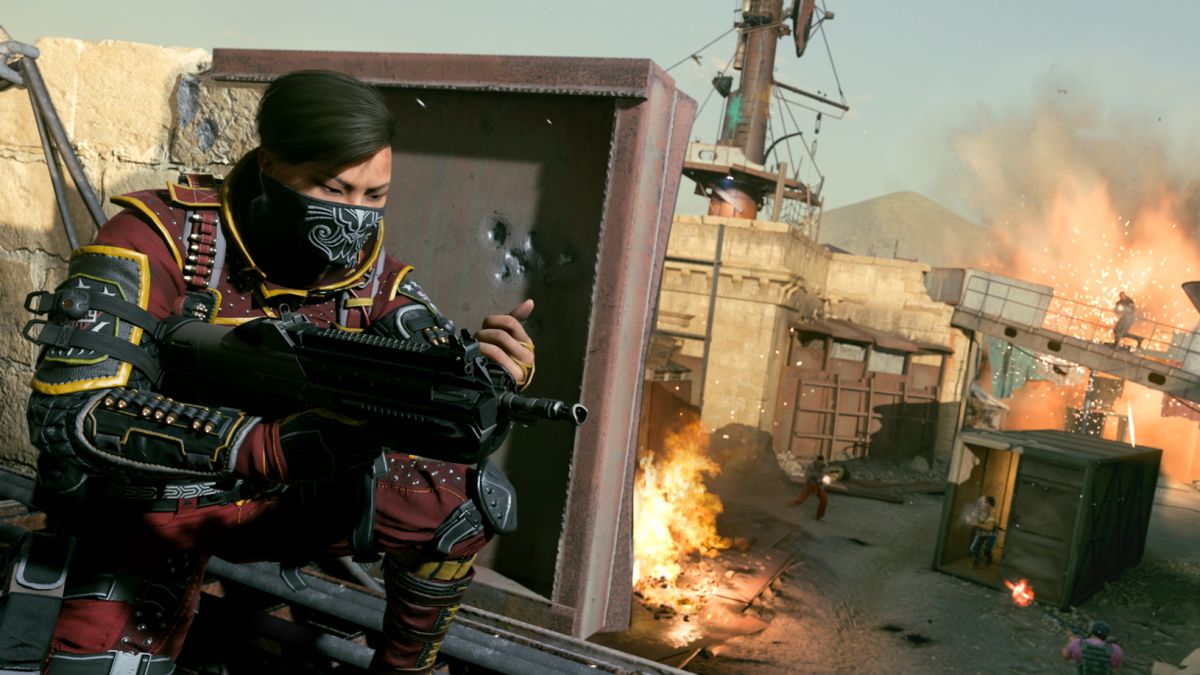
Published: Nov 21, 2021 11:28 am